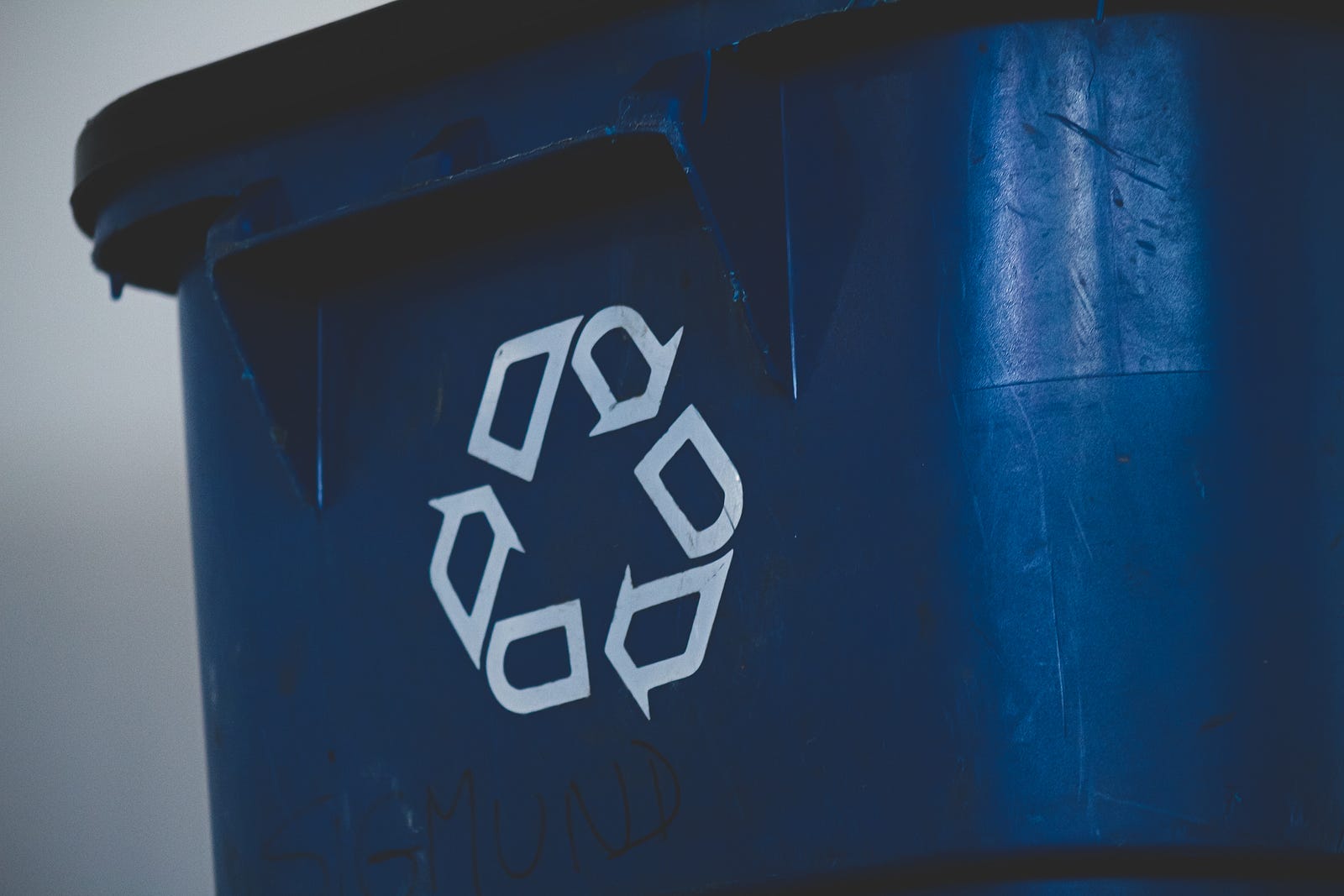My PHP Application Runs 60% Faster: Here is How I Did it!
Coding (PHP 8)
Boosting PHP Performance: Unleashing the Power of Garbage Collectors

As developers, we rely on programming languages to handle memory allocation and deallocation seamlessly, enabling us to focus on building robust and feature-rich applications.
It took me years of experience and I had to find a tech lead to mentor me to understand that efficient memory management plays a vital role in ensuring optimal performance and preventing memory leaks.
One of the key mechanisms I was taught to make my application faster was garbage collection.
What is a garbage collector?
The concept revolutionized memory management by automating the process of reclaiming unused memory and freeing developers from the burden of manual memory deallocation.
In short, garbage collection is the process of identifying and freeing memory that is no longer in use, making it available for future allocations.
By automatically detecting unreferenced objects and deallocating their memory, garbage collectors eliminate the need for explicit memory management, reducing the risk of memory leaks and dangling pointers.
Inefficient memory handling can lead to a host of issues, such as memory leaks, crashes, and degraded performance.
In this blog post, we will explore its significance in programming languages, the underlying principles behind garbage collectors, and how it simplifies memory management for developers.
Understanding Garbage Collectors
What is a Garbage Collector?
A garbage collector is a fundamental component of modern programming languages that automates the management of memory.
Its primary role is to identify and recover unused memory.
By automatically detecting and reclaiming memory that is no longer needed, garbage collectors help prevent memory leaks and optimize resource utilization.
Garbage collectors use various techniques to identify unused memory.
First technique: the “mark and sweep.”
During the mark phase, the garbage collector traverses through the program’s memory and marks all accessible objects.
Any objects not marked are considered unreachable or garbage.
In the sweep phase, the garbage collector frees the memory occupied by the unmarked objects, making it available for future allocations.
Another technique employed by some garbage collectors is “reference counting.”
This approach keeps track of the number of references to an object.
When the reference count reaches zero, indicating that no references point to the object, it becomes eligible for collection.
Garbage collectors continuously monitor the program’s execution, periodically initiating the collection process to reclaim memory.
They optimize the collection process by employing strategies like generational collection, where objects are categorized based on their age to prioritize collection efforts.
By automating memory management, garbage collectors relieve developers from the responsibility of manual memory deallocation, reducing the risk of memory leaks and improving overall program stability and performance.
They play a critical role in enabling developers to focus on building robust and feature-rich applications without the constant worry of memory management intricacies.
Why Do Programming Languages Use Garbage Collectors?
There is nothing worse than a program that runs slowly.
Without proper memory management, programs can suffer from memory leaks, dangling pointers, and other memory-related errors.
Garbage collectors play a crucial role in addressing these challenges by automating the memory management process.
Here are a few reasons why programming languages incorporate garbage collectors:
- Automatic memory deallocation: Garbage collectors automatically identify and reclaim memory that is no longer in use. This relieves developers from the burden of manually deallocating memory
- Simplified memory management: The garbage collector handles the task of freeing unused memory, allowing developers to focus on writing application logic rather than memory management details.
- Prevention of dangling pointers: Garbage collectors help prevent the occurrence of dangling pointers, which are pointers that reference memory that has been deallocated.
- Improved memory efficiency: Garbage collectors optimize memory utilization by reclaiming memory in a timely manner. They can identify and collect unused memory, making it available for future allocations.
- Enhanced program stability and performance: They reduce the occurrence of memory-related errors, such as segmentation faults and memory leaks, resulting in more reliable and efficient software.
Overall, programming languages incorporate garbage collectors to simplify memory management, reduce developer effort, and improve program stability and performance.

Garbage Collection in PHP
How PHP Manages Memory
In PHP, memory management plays a vital role in ensuring efficient and reliable application performance.
PHP follows a managed memory model, where memory allocation and deallocation are handled automatically by a built-in garbage collector.
PHP’s garbage collector acts as a proactive memory manager, responsible for identifying and reclaiming unused memory in PHP applications.
It periodically scans the program’s memory heap, detecting objects that are no longer referenced or accessible.
Once identified as “garbage,” the garbage collector frees up the occupied memory, making it available for future use.
This automatic memory management system in PHP offers several benefits.
By relying on a garbage collector, PHP enables developers to build robust and scalable applications.
It ensures that memory resources are used optimally, especially in scenarios where applications handle a significant amount of data and perform complex operations.
PHP’s approach to memory management, supported by its garbage collector, is crucial for maintaining the stability and performance of PHP applications.
By automatically freeing memory, PHP promotes efficient resource usage and empowers developers to focus on building great software.
PHP’s Garbage Collection Mechanism
PHP’s garbage collection algorithm is designed to efficiently manage memory by identifying and reclaiming unused objects.
The process involves several stages: mark, sweep, and compact.
We have already seen what the mark and sweep steps are but in certain scenarios, PHP’s garbage collector also performs a compact stage.
This stage aims to optimize memory utilization by rearranging the memory heap.
It helps in reducing memory fragmentation and improving the allocation efficiency of objects.
PHP’s garbage collector is also equipped to handle cyclic references and circular dependencies.
These situations occur when objects reference each other in a circular manner, making it challenging to determine which objects are still in use.
To handle this, PHP uses a technique called “garbage collection with reference counting.”
Reference counting keeps track of the number of references to an object.
This approach helps PHP identify and collect cyclic references and circular dependencies effectively.
By intelligently managing cyclic references and circular dependencies, PHP’s garbage collector ensures that memory is properly reclaimed, even in complex scenarios.
Configuring and Optimizing PHP’s Garbage Collector
PHP offers various configuration options to fine-tune the behavior of its garbage collector and optimize the performance of memory management in your applications.
One important configuration option is the gc_enable directive, which enables or disables the garbage collector.
By default, it is enabled, but in some cases, you may choose to disable it if you have specific memory management strategies in place.
Another significant configuration option is gc_divisor and gc_probability.
These directives control the probability and frequency of garbage collection cycles.
By adjusting these values, you can balance the trade-off between memory reclamation and the overhead of the garbage collector.
A higher divisor or lower probability value reduces the frequency of garbage collection cycles, potentially improving performance but increasing memory consumption.
Additionally, PHP provides the gc_mem_caches directive, which determines whether the garbage collector scans the memory caches for objects.
Enabling this option allows the collector to detect and reclaim unused objects more efficiently.
However, it may also increase the overhead, especially if your application heavily utilizes memory caching.
Use best practices
When it comes to optimizing garbage collection performance, it’s essential to follow some best practices.
Avoid unnecessary object creation and excessive memory consumption.
Design your code to reuse objects when possible, reducing the burden on the garbage collector.
Also, be cautious with circular references and cyclic dependencies.
While PHP’s garbage collector handles them efficiently, it’s still good practice to minimize their occurrence.
Ensure that objects are properly unset or their references are released when they are no longer needed.
Another important consideration is memory usage patterns.
Analyze your application’s memory usage and adjust the garbage collector configuration accordingly.
If your application has peak memory usage at specific intervals, you might want to schedule garbage collection cycles to align with those intervals for optimal performance.
Lastly, stay up to date with the latest PHP versions.
PHP continually improves its garbage collection mechanisms, introducing performance enhancements and optimizations.
Keeping your PHP installation updated ensures that you benefit from these improvements.
By leveraging PHP’s garbage collector configuration options and following best practices for optimization, you can enhance garbage collection performance in your PHP applications.
Impact on PHP Application Performance
Pros and Cons of Garbage Collection in PHP
Garbage collection in PHP offers several advantages that simplify memory management in applications.
One key advantage is automatic memory deallocation, relieving developers from the burden of manually freeing memory.
This helps prevent memory leaks and reduces the likelihood of bugs caused by incorrect memory management.
Another benefit is the handling of cyclic references and circular dependencies.
PHP’s garbage collector can identify and reclaim memory occupied by objects that are no longer reachable due to such references.
This prevents memory leaks that can occur when objects reference each other in a cyclic manner.
However, it’s important to consider potential drawbacks when using garbage collection in PHP.
One concern is the performance overhead associated with garbage collection cycles.
The collector needs to scan and analyze the objects in memory, which can introduce some additional computational overhead.
In applications with large object graphs or frequent object allocation and deallocation, this overhead can impact performance.
Another consideration is memory usage.
Garbage collection requires memory to store internal data structures and track object states.
While the collector reclaims unused memory, there may be a slight increase in memory consumption during garbage collection cycles.
However, modern PHP versions have made significant optimizations to minimize this impact.
I have written many times already why it is important to keep your PHP version up to date.
To address concerns related to performance overhead and memory usage, it’s important to follow best practices for efficient memory management.
It’s worth noting that PHP’s garbage collector has undergone significant improvements over the years, and performance concerns are mitigated in most scenarios.
Strategies for Efficient Memory Management in PHP
When developing PHP applications, optimizing memory consumption is crucial for improving performance and scalability.
Here are some tips and techniques to help you write PHP code that minimizes memory usage:
- Object Reuse: Instead of creating new objects whenever possible, consider reusing existing objects.
- Resource Cleanup: Be mindful of freeing up resources when they are no longer needed. Close database connections, release file handles, and destroy other resources explicitly to avoid unnecessary memory usage.
- Memory Profiling: Use memory profiling tools to identify memory-intensive areas in your code. Tools like Xdebug and XHProf can help pinpoint memory usage bottlenecks.
- Limiting Result Sets: When working with databases, retrieve only the data you need. Avoid fetching large result sets unnecessarily and utilize pagination or limit queries to retrieve smaller chunks of data.
- Caching: Implement effective caching mechanisms to reduce the need for repeated computations or resource-intensive operations.
- Use Data Types Wisely: Choose the appropriate data types for your variables and arrays.
- Efficient String Handling: Strings can consume a significant amount of memory, especially when dealing with large datasets. Optimize string operations by using string functions like
substrorstr_replaceinstead of creating new string instances. - Garbage Collection Optimization: Tune the garbage collector’s configuration options based on your application’s needs.
By following these practices, you can write PHP code that minimizes memory consumption, improves overall performance, and ensures efficient resource utilization.
Conclusion:
Garbage collectors play a vital role in simplifying memory management in programming languages like PHP.
They automatically identify and reclaim unused memory, relieving developers from manual memory deallocation.
By leveraging the power of garbage collection, PHP developers can write efficient code without memory leaks or dangling pointers.
Adopting best practices, such as object reuse and resource cleanup, further optimizes memory consumption.
This was a concept a bit advanced for more experienced web developers, I also write content about complete basics and other topics relevant to engineers
if you want to read more of my content subscribe to my newsletter to be the first notified when a new post is published.
